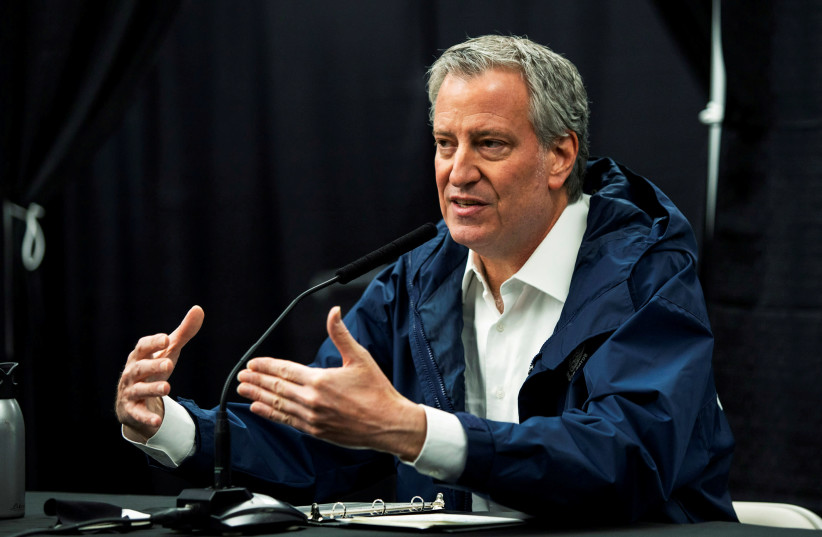On December 13, New Yorkers woke up to a new set of COVID restrictions mandating that masks be worn in all indoor public places unless venues implement a vaccine requirement. New York Gov. Kathy Hochul’s “mask or vax” ruling is in response to the recent uptick of COVID cases in the state. The lawmaker’s request is placing a renewed spotlight on Jewish schools and synagogues who are now left grappling with strengthening Jewish identity among its youth while still adhering to a new set of directives.
To its credit, my synagogue, along with my children’s Jewish day schools, have instituted well-executed COVID protocols that prioritize the safety and spiritual well-being of both congregant and student. Yet, for many New York Jewish institutions, a reflexive instinct exists to respond dramatically and advance heavy-handed COVID regulations that surpass what is directed by the state.
Since the start of the pandemic, Jewish leaders have underscored the principle of Pikuach Nefesh (saving a life) as justification for pandemic shutdowns and altered religious routines. Yet, as Rabbi Aryeh Klapper notes: “The Torah balances its desire to prevent harm with the value of living a normal life.” He goes on to write that “the Torah does not require or even want us to live a life organized entirely around staying alive.”
Coincidentally, within days of Hochul’s announcement, a Pew Research Center study revealed a decline in American religious affiliation during the COVID pandemic. The results follow Pew’s Survey of US Jews last May, which found that approximately 600,000 US children are living with a Jewish adult but are not being raised as Jewish in any way. These revelations are disturbing given that New York is home to the largest concentration of Jews outside of Israel. The state’s institutional behavior, while accelerating a trend of perfecting pikuach nefesh, is also mortgaging our children’s Jewish future while stoking religious divisions.
Although US Jews retain one of the highest vaccination rates among any religious group, and the Omicron variant is emerging as milder than previous strains of COVID, several New York Jewish day schools were the first to react to news of a spike in COVID cases. In recent weeks, as NYC Mayor Bill de Blasio announced that he would not close down schools, a number of Jewish day schools immediately went remote, forcing thousands of children back home and behind screens following two years of educational and social upheaval.

Given that foreign travel to Israel has been challenging to predict and difficult to navigate, the removal of an obvious religious touchstone inevitably places a greater burden on Jewish establishments to fill a sacred void. Over the last few days, Conservative (Masorti) and Reform synagogues have announced that they will start zooming Shabbat services. One area synagogue publicized that they will no longer allow unvaccinated youth over five years of age into the building. This decision which, along with preventing a rising generation from participating in programming designed to bolster Jewish fidelity, also belies the reality that, to date, only 29% of children ages 5-11 in New York are vaccinated. In other synagogues, youth events have continued with anxious parents often spending more time fussing over the strip of cloth covering their child’s nose rather than valuing the piece of fabric covering their head.
The author is a writer and pro-Israel advocate. Her work has appeared in The American Spectator, JNS, The Algemeiner, and Israel Hayom.
